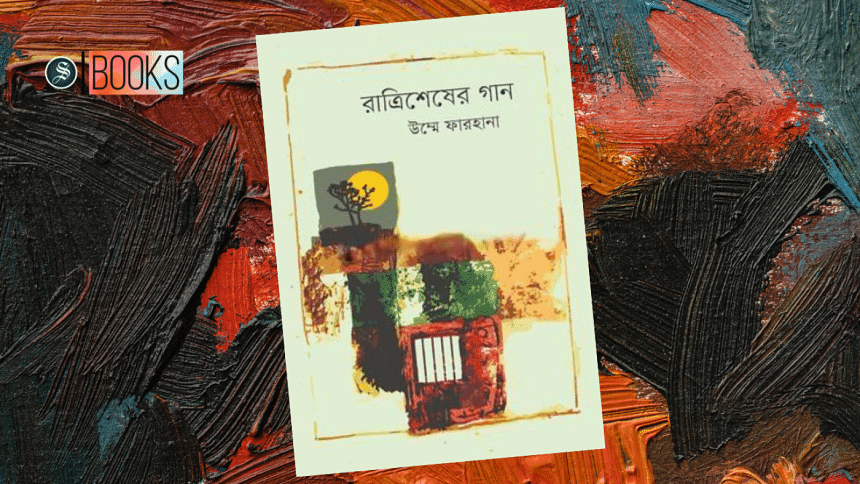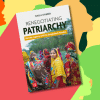A tale of existential crisis in the modern world

TRIGGER WARNING: suicide
As she stepped into the room, my attention was immediately drawn to the vibrant hues of the gypsy dhol pants she wore, effortlessly carrying the spirit of autumn with her. We had just started our virtual class with Julia Philips, an American author. It was the first class of a writing residency programme in Bangladesh held in November 2023. Little did I expect to meet a published author amidst a sea of aspiring poets and writers, such as myself. While Umme Farhana was already writing fiction for Bangali readers, she had travelled all the way from Mymensingh to Sreemangal with the zeal to establish herself as a prominent South Asian writer who writes in English.
In the midst of our discussions about brief introductions and aspirations, Professor Farhana, teaching English Literature at the Jatiya Kabi Nazrul Islam University, shared a brief summary of her ongoing feud with publishers over the title of her fourth book and the first novel (her previous three books are a collection of short stories). Originally envisioned as 'Gracias a La Vida', a famous song by Chilean composer and singer Violet Parra, the timeless anthem heavily inspired the narrative, resulting in the frequent presence of Spanish motifs and references. However, to her dismay, the publishers insisted on a Bangla title, presenting Farhana with a daunting ultimatum: conform or no publication. The dilemma weighed heavily on her, which was evident when we crossed paths. Three months later, she posted a photo of her freshly printed novel on social media. The book cover, that is, the new title confirmed the publishing house's victory.
The heart of the story revolves around the protagonist's love for the popular Latin singer Mercedes Sosa's rendition of the song, portraying a woman in her mid 30s enamoured with the Spanish language. Amidst an existential crisis triggered by a spinal cord injury, the once free-spirited and ambitious Ratri grapples with a life of dependency and bitterness. Confined mostly to her bed or wheelchair, she harbours a deep resentment towards the world she once embraced with passion.
The narrative is replete with vivid imagery. The recurring verses of old Spanish melodies reminded me intensely of Lahiri's quest to conquer Italian, with all its allure. It seems as if both Lahiri and Farhana are chasing similar shadows. There is a profound beauty in the organic love for a language, uncontrived and untainted—a love that is holy and unconditional. The narrative traverses back and forth in time, gradually unveiling the complexities of her relationships, both tumultuous and enduring, as she navigates the aftermath of the accident. Her nightmares and jumbled thoughts grow increasingly harsh with each passing moment. The tale unfolds over a span of roughly three weeks, with the chapters becoming shorter as it progresses towards its end.
Never before had I read the work of someone with whom I shared an entire week, nearly every waking moment. A bookworm, who voraciously reads all types of books in English and Bangla is an ardent Elif Shafak fan. As I dove into her writing, glimpses of her own personality flickered between the lines. The lines between Ratri, the fictional character, and Farhana, the author, are sometimes blurred. Both walked the corridors of the same school, tasted the bittersweet flavours of love and moved on, and the gaping hole left by fathers gone too soon. Yet, within their shared history, distinct threads emerged.
Farhana, the confident, self-assured woman she is, had woven a tale of a deeply troubled soul. Ratri, the former theatre artist, meticulously planning her own end, was trying to find the true meaning of her existence in between. She wasn't simply contemplating suicide; she was analysing and weighing the pros and cons with a chilling rationality.
The suicide wasn't just an act; it was a methodically planned performance. But even in her desire for ultimate solitude, Ratri couldn't escape the bitter truth—even this final act of defiance required dependence on others. Through Ratri's story, the author painted a poignant portrait of our inherent interconnection—a truth amplified when our vulnerabilities are laid bare. She depicted beautifully that we are, no matter what, dependent on others, more so when we are compromised by our mundane or ordinary features and senses.
The phrase for expressing gratitude, whether in Spanish with "gracias a la vida", in Bangla with "jibon tomake dhonnobad", or in English with "thank you, life", feels like an overwhelming task in the present world. The plot sheds light on a privileged modern experience where time stands still, stopping the clock as the days and nights roll and go. Amidst this stillness, a turbulent wave of uncertainty crashes—which mingles to provide a landscape of degeneration, similar to the ways memories fade away to the point we remember them as dreams, leaving behind remnants that confuse us in more ways than one.
Ratrishesher Gan is available at Rokomari, Prothoma, and other prominent places, also at the ongoing Ekushey Boi Mela at the Prothoma stall.
Salwah Chowdhury is a bookworm and a toddler mom, working in an NGO. She loves the rush of thinking, reading and writing, and takes on freelance projects every now and then. Follow her on Instagram @salwah_chowdhury and share any book recommendations or your thoughts on the article.

 For all latest news, follow The Daily Star's Google News channel.
For all latest news, follow The Daily Star's Google News channel. 











Comments